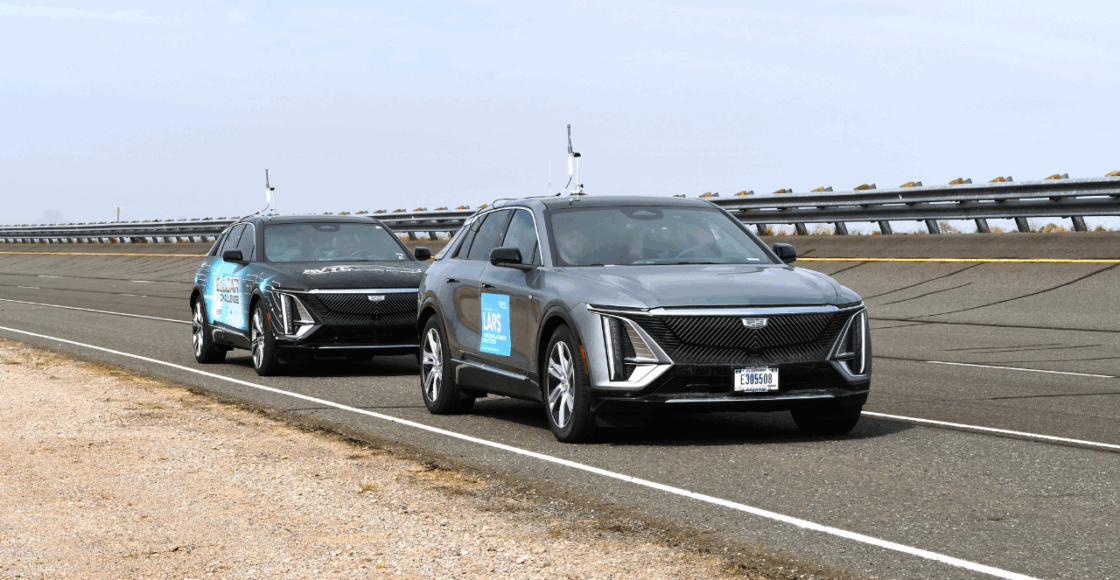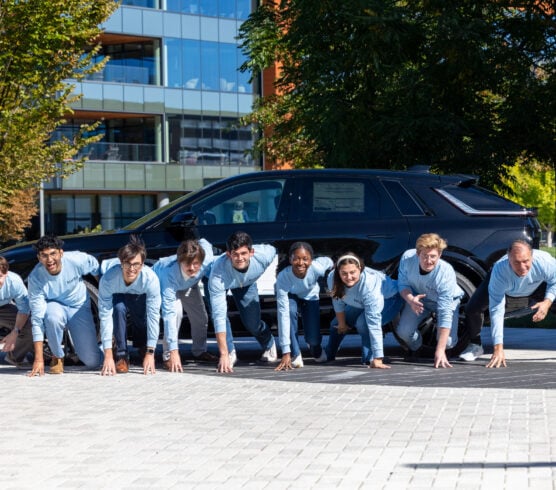Written by: Ashley Kronsell Oller
The EcoCAR EV Challenge provides the next generation of engineers with hands-on experience designing, testing, and refining cutting-edge vehicle technologies. A key focus area of this current series is the development and evaluation of Connected and Automated Vehicle (CAV) features, which are advanced systems designed to make driving safer and more efficient.
From lane-centering and adaptive cruise control to navigation through complex intersections, EcoCAR teams are tasked with integrating and optimizing these systems in their Cadillac LYRIQs. Through hands-on testing and rigorous evaluation, students gain valuable real-world experience, working both on vehicle dynamometers at the California Air Resources Board and on test tracks at the General Motors Proving Grounds. These efforts ensure that each feature performs reliably in controlled lab environments as well as in dynamic, real-world conditions.
To support this level of precision, EcoCAR leverages cutting-edge tools developed by researchers at Argonne National Laboratory, including the Longitudinal Automated Replay System (LARS). LARS is a vehicle-integrated hardware platform with a custom software stack that enables the automated execution of highly accurate speed traces, which are essential for validating advanced driver-assistance features such as Adaptive Cruise Control (ACC). By creating consistent, repeatable scenarios, LARS allows teams to thoroughly test and refine their CAV systems.
Vehicle-to-Everything (V2X) testing is powered by FlexCorridor, another Argonne innovation. FlexCorridor uses flexible Road Side Units (RSUs) to generate SAE J2735 encoded Signal Phase and Timing (SPaT) messages and intersection map (MAP) data on demand, adapting in real time to the state of the Vehicle Under Test (VUT). This test measures how well vehicles can receive and interpret critical V2X data, such as intersection geometry and signal timing, and use them to autonomously navigate through intersections safely and efficiently. This dynamic setup allows teams to test connected vehicle technologies in a wide variety of intersection scenarios without needing permanent physical infrastructure.
These innovations not only increase the competition’s technical rigor but also provide students with hands-on experience developing the systems and tools that will define the future of connected and automated mobility, while working alongside industry subject matter experts and researchers.
To learn more about have CAVs are evaluated in EcoCAR, watch the latest video below:




